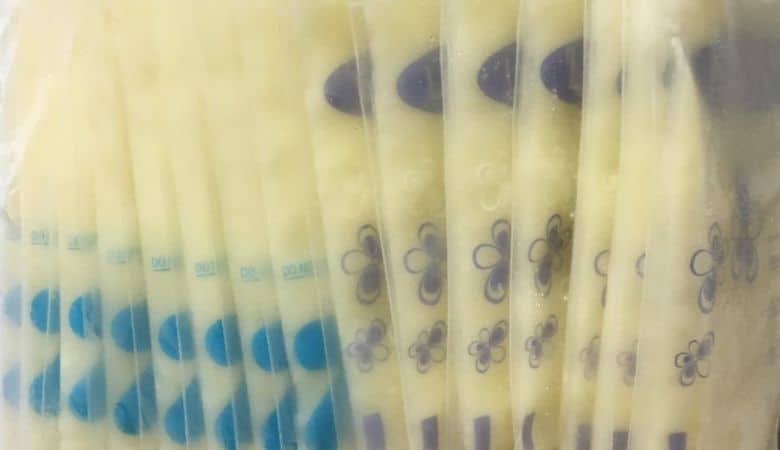For Immediate Release
For contact information, please see our media kit.
Newton, MA – Mothers’ Milk Bank Northeast, a nonprofit human milk bank serving over 100 hospitals as well as outpatients, is facing an urgent need for new milk donors. Hospital and outpatient demand for pasteurized donor human milk has increased 15% since March 2021. Demand will soon outpace supply unless new milk donors volunteer for screening.
“Milk banks, like blood banks, are facing an urgent need for donors. Most blood donors can donate over many years, but there is only a brief window when a lactating person can donate,” commented Deborah Youngblood, Executive Director of Mothers’ Milk Bank Northeast. “If you have milk in your freezer, you could save a baby’s life right now.”
Why donor milk is important
Pasteurized donor human milk (PDHM) can be lifesaving for preterm infants. It is especially protective against a life-threatening condition called necrotizing enterocolitis (NEC), which affects one in ten of the smallest preterm infants. A human milk diet is estimated to lower the risk of this condition by 79%. It also lowers hospital costs by reducing costs for care and shortening hospital stays.
In October 2021, the American Academy of Pediatrics Section on Breastfeeding issued a report reaffirming the importance of human milk, including pasteurized donor human milk, for very low birthweight infants (1,500 grams or less). The lead author was Dr. Margaret Parker of Boston Medical Center, who serves on the milk bank’s Medical Advisory Board.
“Pasteurized donor human milk is not just food for premature babies; it’s medicine. With more hospitals offering donor milk as standard of care, we need to ensure an ample supply so that no baby who needs donor milk ever goes without it,” remarked Dr. Robert Insoft, Medical Director of Mothers’ Milk Bank Northeast.
While donor milk is now widely used for preterm babies in neonatal intensive care units (NICUs), an increasing number of hospitals are also offering it for full- and near-term babies, as well as for outpatients leaving the hospital. These uses have also driven up demand. In these cases, it can be offered as a supplement, or “bridge milk,” until mother’s own milk supply increases, and for issues such as hypoglycemia, hyperbilirubinemia, excessive weight loss, and latch problems.
Donor milk screening and safety
Mothers’ Milk Bank Northeast collects milk from mothers who have more milk than their babies need; screens, pasteurizes, and tests the milk; then dispenses it to babies whose mothers do not have enough milk for them. Milk donor screening, modeled after blood donor screening, includes health history, physician approval, and blood test. Milk from mothers who pass the screening is also pasteurized and tested by an independent lab to ensure safety before being dispensed to hospitals or families.
Urgent need: how to help
Healthy lactating women who wish to learn more and start the screening can visit the milk bank’s website, email donate@milkbankne.org, or call 617-527-6263 x3.
###
About Mothers’ Milk Bank Northeast
Mothers’ Milk Bank Northeast is a nonprofit community milk bank accredited by the Human Milk Banking Association of North America (HMBANA). The milk bank has been screening donors, pasteurizing milk, and dispensing to over 100 hospitals and to families throughout the Northeastern United States since 2011.









